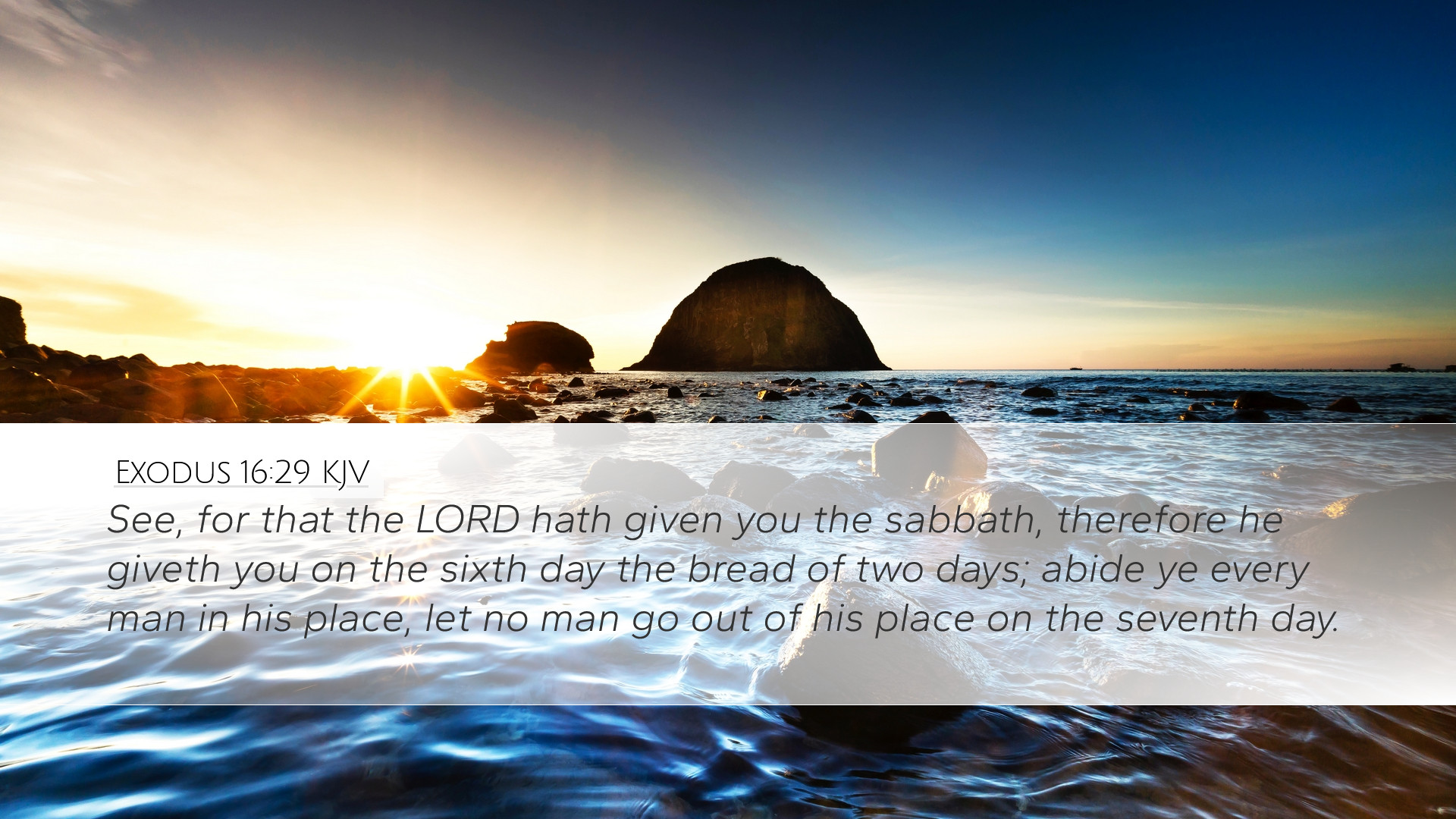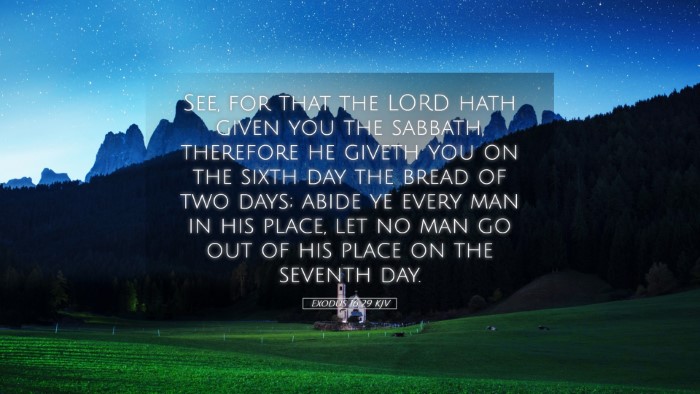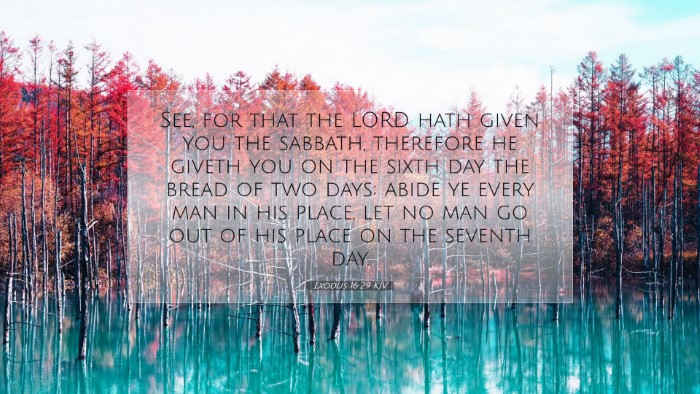Exodus 16:29 Commentary
Verse: “See, the LORD has given you the Sabbath; therefore He gives you on the sixth day bread for two days. Let every man remain in his place; let no man go out of his place on the seventh day.”
Overview of Exodus 16
Exodus 16 narrates the account of the Israelites in the wilderness, highlighting God's provision of manna. This chapter illustrates God's faithfulness to His covenant people and underscores the importance of obedience and reliance on divine provision.
Exegesis of Exodus 16:29
This specific verse operates within the broader context of God's instructions on the Sabbath and the provision of manna. It emphasizes God's intention for His people to rest and cease from labor, thereby recognizing His sovereignty over creation.
Divine Provision and Sabbath Rest
Matthew Henry notes that the instruction to gather a double portion of manna on the sixth day reflects God's foreknowledge and care for His people. The Sabbath is thus portrayed not only as a day of rest but also as a testament to God's continual provision.
The Significance of the Sabbath
Albert Barnes observes that the Sabbath was instituted as a day when the people might enjoy rest and communion with God. It serves as a reminder of creation (Genesis 2:2-3) and covenant. The instruction “let no man go out of his place” reinforces the importance of abiding by God's commands, ensuring a collective observance of this sacred day.
Faith and Obedience
Adam Clarke highlights that the command to remain in one’s place during the Sabbath symbolizes a deeper call to trust in God's provision. It is an act of faith, acknowledging that God provides sufficiently for their needs without requiring them to seek out more on the Sabbath.
Theological Implications
This verse illustrates several critical theological themes that resonate across the Scriptures:
- God's Sovereignty: The decree given illustrates God's absolute control over the natural order and His provision for His people.
- Covenantal Relationship: The giving of the Sabbath reflects God's commitment to His people, establishing a rhythm of work and rest.
- Faith in Provision: The command to refrain from work underscores a call to trust in God's sufficiency.
Practical Applications for Pastors and Scholars
For pastors and theologians, the discussion around Exodus 16:29 offers profound implications for ministry and community practice:
- Teaching on the Sabbath: This passage provides a foundation for exploring the Sabbath's role in spiritual formation and the call to rest in Christ, reminiscent of the New Testament teachings.
- Faith Practices: Encouragement to foster a church culture that prioritizes collective rest and reduces the temptation for "more" in an ever-busy world.
- Community and Covenant: The implications for community building can be drawn, emphasizing a shared commitment to observe God’s commands that foster unity.
Conclusion
Exodus 16:29 invites believers to a deeper understanding of God's provision and the importance of resting in His promises. It calls for a recognition of God's sovereign care and a commitment to live in accordance with His commandments, thereby nurturing faith and community among God's people.


